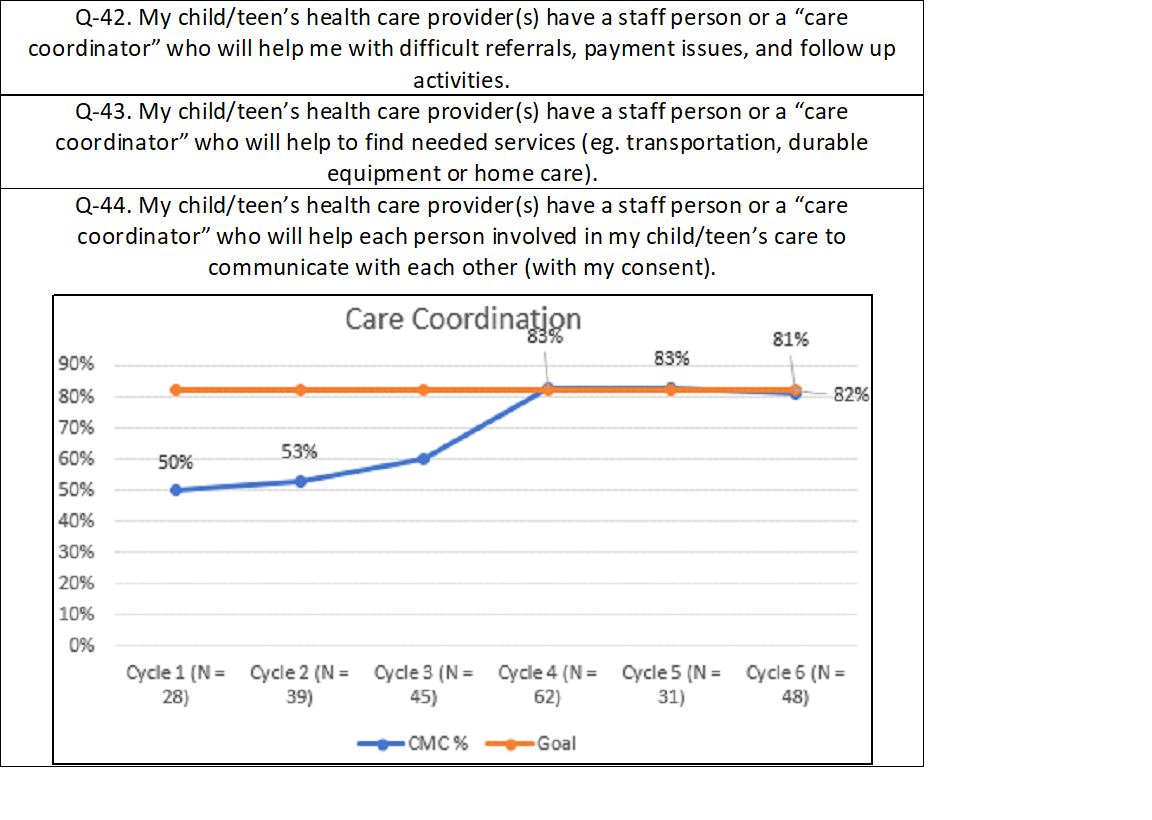Children with Chronic Conditions
Children with Chronic Conditions 1
718 - Impact of Embedding a Coached Nurse for Complex Care Coordination in Primary Care
Publication Number: 718.105

Alyssa Swick, MD (she/her/hers)
Assistant Medical Director, Indiana Complex Care Coordination Collaborative
Indiana University School of Medicine
Brownsburg, Indiana, United States
Presenting Author(s)
Background: There has been over two decades of interest in care coordination (CC) interventions. CC outcomes measure results across the quadruple aim, including improved quality of care, health care utilization/costs, and patient/clinician satisfaction.
Objective: To determine if implementation of a coaching program for nurse care coordinators embedded in primary care can show improvements in family satisfaction and in staff assessment of their CC services for children with medical complexity (CMC).
Design/Methods: Family and staff surveys were collected from three participating practices between 2019 and 2022 to assess the implementation of a coaching curriculum in complex care coordination. The Family Satisfaction instrument was developed and implemented through the work of the Collaborative Improvement and Innovation Network to Advance Care for Children with Medical Complexity where composite positive scores on care coordination and shared plan of care questions were compared in six cycles of semi-annual data collection. Voluntary convenience samples of up to 20 surveys were collected from families in each of the practices per cycle. The Staff 10-item CC Assessment was adapted from the Center for Medical Home Improvement where individual items are scored 0=don’t know, 1=no, 2=partially, or 3=yes and collected before and after project implementation.
Results: An average of 42 family surveys were collected each cycle (range 28-62, total count of 253). The percentages of families responding positively on all of 10 questions about shared plans of care improved from 33% to 55%. (Figure 1) Care coordination scores where responses were yes to all of three questions improved from 50% of families to 81%. (Figure 2)
Team surveys were collected at the introduction of the program (N=35, 26% clerical, 31% clinicians, 43% nursing) and at year 3 (N=31, 19%, 39%, 42%). Total scores increased by 85% (from 14.38 to 26.73). (Table 1) The largest increase occurred in the practices’ identification and assessment of children with complex needs leading to the development, distribution and routine updating of collaborative care plans. The lowest score on post survey was in asking families for feedback about their experiences with health services/care coordination, despite the collection of semi-annual family surveys.
Conclusion(s): A coached complex care nurse coordinator program can show improvements in family satisfaction with CC and staff understanding of the CC program. Results on individual items can assist in creating quality improvement activities within the program. .png)

.png)
